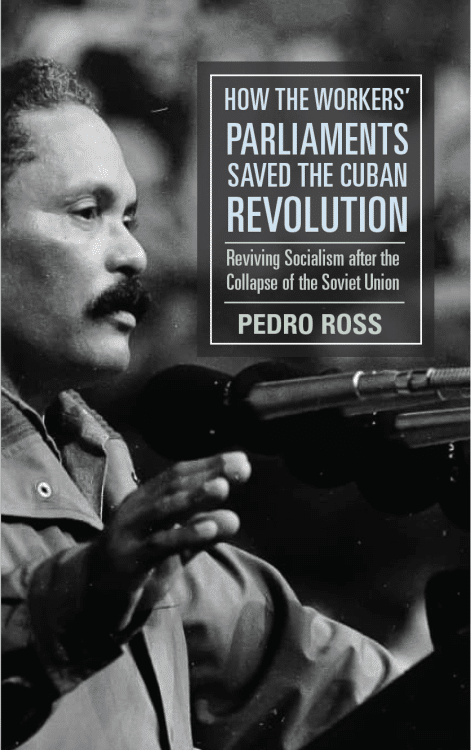How the Workers’ Parliaments Saved the Cuban Revolution:
Reviving Socialism after the Collapse of the Soviet Union
By Pedro Ross
288 pages / Paper US$ 27.00 / 978-1-58367-9784
Reviewed by Steve Cushion for New West Indian Guide
The end of the USSR removed Cuba’s principal trading partner overnight, depriving the country of the main market for its sugar harvest, which had been purchased at a fair price, well in excess of the artificially low world price. The U.S. government saw this as an opportunity to deal the finishing blow to the Cuban Republic and return the island to the neocolonial status in which it had been held before the 1959 revolution. The U.S. blockade was strengthened. Given the sudden drop in the standard of living, with resulting drastic food shortages, real hunger, and cuts in power and other basic services, there was every possibility that this would indeed be the end of the Revolution.
Pedro Ross was General Secretary of the Central de Trabajadores de Cuba (CTC). A lifelong trade union militant, he managed to use the trade unions to convince the workers that their best interests lay in defending the Revolution and that, bad as things were, they would be worse if the system collapsed. At the same time, he convinced the government that they had to keep the organized working class loyal to the Revolution. His negotiations directly with Fidel Castro obtained what was probably the best deal possible for the workers in the circumstances.
Mass meetings took place in 80,000 workplaces, neighborhood committees, farmers’ organisations, and the Federation of Cuban Women. These acted as a two-way conduit, informing the workers and farmers of the reality of the situation while, at the same time, allowing for votes on different options, all unpalatable, but some more acceptable than others. By giving ordinary people a direct say and a stake in the solution of the crisis, the Workers’ Parliaments brought back a commitment to the social gains of the Revolution and enabled Cuban society to slowly emerge from the “Special Period.”
The blow by blow accounts in this book make fascinating reading, I was particularly impressed by the discussion of the Cigar Workers’ Parliament. It provided the cigar workers an opportunity to raise grievances about the management of the factory, to condemn the thefts of raw materials and to propose solutions to the country’s economic woes.
Pedro Ross was able to use his direct contact with Fidel Castro to resolve some of the problems with inefficiency and corruption.
When I launched the Spanish language version of my book, A Hidden History of the Cuban Revolution (2016), it took place in that same cigar factory and Pedro Ross spoke on the panel with me. I was impressed that, a generation later, he still commanded immense respect among the cigar rollers. As he walked onto the factory floor, unannounced, a great cheer went up and the workers made a deafening clatter, banging their knives on the desks.
Today Cuba faces a dire economic situation caused by a combination of Covid and the U.S. embargo. I asked friends in Cuba if such Workers’ Parliaments could help resolve the situation again. There was a general feeling that the situation today is not comparable with the 1990s, but all of them thought that the leadership of the ctc could profit from reading Pedro’s book if only to give inspiration and encouragement.
How the Workers’ Parliaments Saved the Cuban Revolution is a valuable account of working-class history, written by someone who was a witness to events seen both from above and below, a senior national figure who never forgot his working class roots. As I said in my comments for the back cover, “Pedro Ross Leal is ideally placed to tell us how Cuba survived the collapse of the Soviet Union. As General Secretary of the Cuban trade union confederation, he was central to organising the 80,000 Workers’ Parliaments that discussed and proposed measures required to solve the crisis, as well as generating the enthusiasm to implement them. In highlighting the little-known role of the Cuban working class during the Special Period, this book is essential to understanding the survival of revolutionary Cuba.” It goes a long way to explaining why socialist Cuba survived when the ussr and its European satellites collapsed.

Comments are closed.